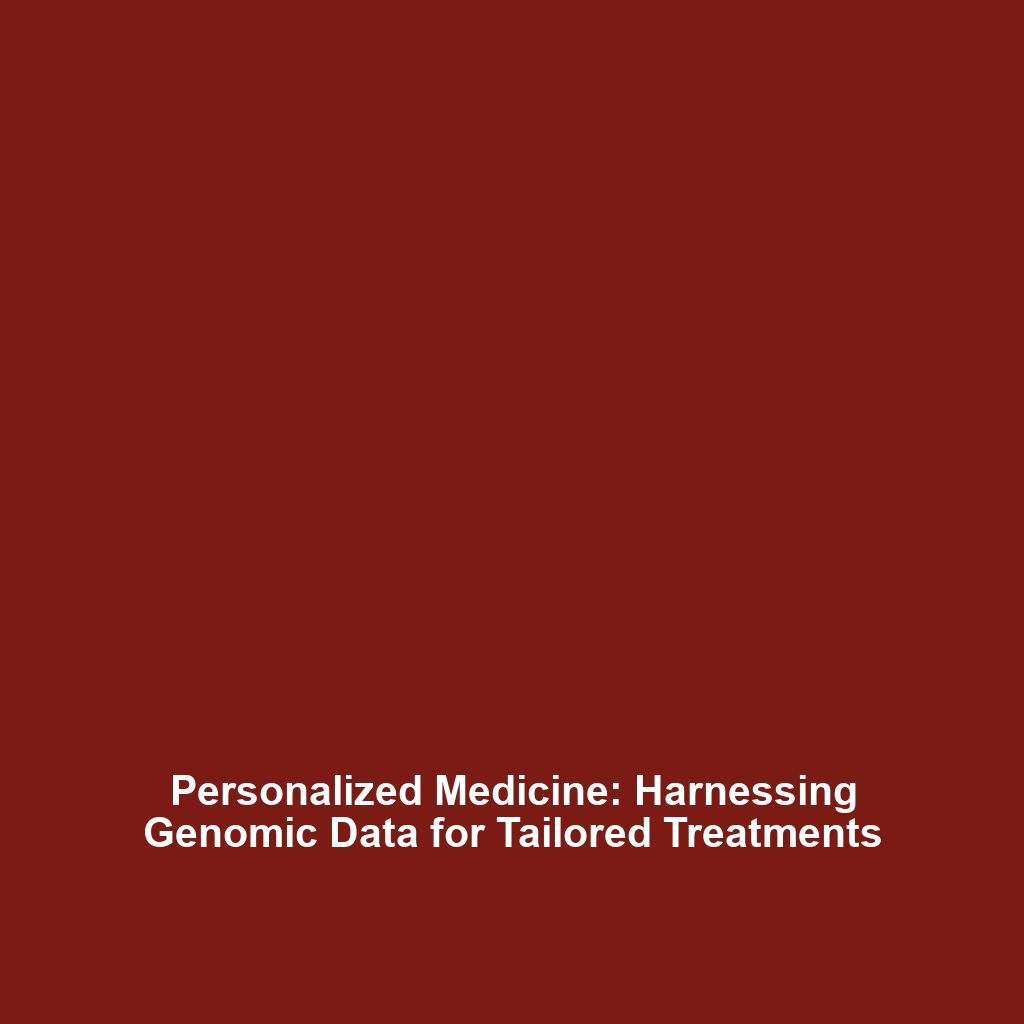Genomic Data and Personalized Medicine: Insights from the Human Genome Project
Introduction: The ability to tailor medical treatments to an individual’s genetic makeup marks a significant advancement in healthcare, primarily as a result of the Human Genome Project (HGP). This groundbreaking initiative, which successfully mapped the entirety of the human genome, has provided invaluable genomic data that enables personalized approaches to medicine. With the increasing understanding of how genetic variations affect treatment responses, the potential to improve patient outcomes through personalized medicine has never been more promising. This article dives into the relevance of genomic data within the framework of the Human Genome Project and its implications for future medical practices.
Key Concepts
Genomic data enables personalized approaches to medicine by leveraging insights derived from the HGP. The project has highlighted several key concepts:
- Genetic Variation: Understanding genetic differences among individuals allows healthcare providers to predict how patients will respond to certain treatments.
- Pharmacogenomics: This field studies how genes affect a person’s response to drugs, paving the way for tailored medications.
- Biomarkers: Genomic data identifies specific biomarkers that help in diagnosing conditions and choosing effective therapies.
Applications and Real-World Uses
Exploring how genomic data influences personalized medicine highlights several significant real-world applications:
- Cancer Treatment: Tailoring chemotherapy and targeted therapies based on a patient’s genetic makeup.
- Cardiovascular Health: Using genetic insights to predict risks and customize prevention strategies.
- Rare Genetic Disorders: Developing gene therapies specific to individual genetic mutations identified through genomic data.
These applications showcase the profound impact of how genomic data is used in personalized medicine, stemming directly from insights gained through the Human Genome Project.
Current Challenges
Despite the potential of genomic data in personalized medicine, several challenges remain:
- Data Privacy: Concerns surrounding patient data security and privacy must be addressed.
- Access Disparities: The unequal availability of genomic testing and personalized treatments across different populations.
- Regulatory Frameworks: The need for updated regulations that keep pace with rapid advancements in genetic research.
These challenges underscore the complexities of integrating genomic data into standard medical practice.
Future Research and Innovations
Future research in genomic data and personalized medicine promises exciting innovations, including:
- Next-Generation Sequencing: Enhancements in sequencing technology that will lower costs and improve speed.
- AI and Machine Learning: Utilizing artificial intelligence to analyze genomic data for more accurate predictions.
- Tissue Engineering: Advancements in creating personalized tissues for transplant or therapy based on genomic insights.
Such innovations will continue to shape the landscape of personalized medicine, influenced heavily by discoveries from the Human Genome Project.
Conclusion
In summary, genomic data enables personalized approaches to medicine, significantly enhancing the potential for tailored treatments based on individual genetic makeups. The Human Genome Project has laid the vital foundation for this transformative shift in healthcare. As we look to the future, continued exploration and innovation in this field are essential. For more insights on personalized medicine, consider reading about the latest clinical trials focusing on pharmacogenomics and other advancements.

